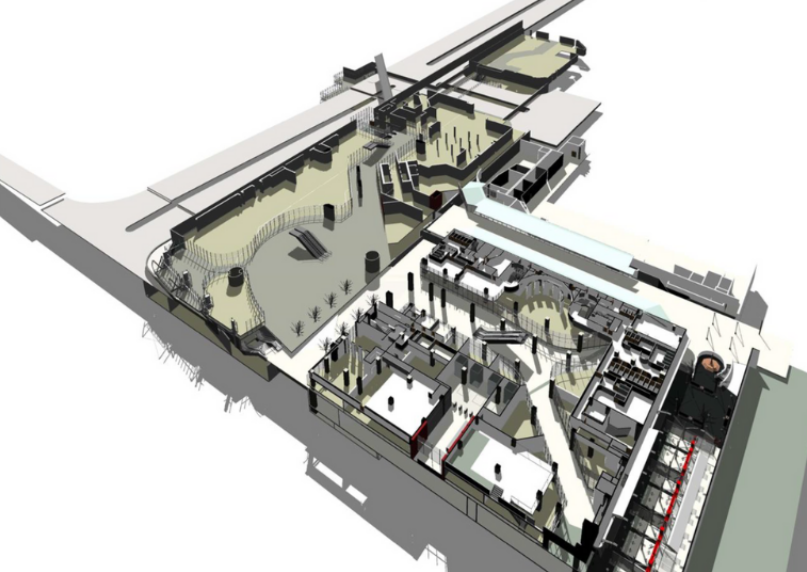Some respite for Basil Read

Advertising
09-10-2019
Read : 176 times
Moneyweb
Source
Business rescue practitioners still pursuing ‘substantial’ outstanding claims.
Financially distressed listed construction group Basil Read, which is in business rescue, has achieved “significant positive victories” in its claims related to contracts with the Trans Caledon Tunnel Authority (TCTA) and Transnet.
Matuson & Associates, the group’s business rescue practitioners, said the Dispute Adjudication Board (DAB) had in these two instances ruled in favour of Basil Read “for a significant number of claims and reversal of negative certificates”.
They did not quantify the value of the successful claims. Attempts to obtain comment from Matuson & Associates about the quantum of the successful claims were unsuccessful.
In a ninth update report on the implementation of Basil Read’s business rescue plan released on Tuesday, they added that Basil Read continued to pursue the outstanding claims, which were substantial.
“The success in the recovery of these claims will impact materially on the end result of the business rescue process,” they said.
The business rescue practitioners said at the end of May this year the contract claims amounted to more than R200 million.
One of the objectives of the group’s business rescue plan, which was approved by creditors in October last year, was to maximise the value of construction claims but the business rescue practitioners have repeatedly reported that this process is “time consuming, tedious and costly”.
The business rescue practitioners on Tuesday also reported significant process in facilitating the completion of loss-making contracts, a key objective of the business rescue plan, to minimise the risk of the performance guarantees being called and further burdening the balance sheet.
They reported that the contingent liability of these guarantees had been further reduced to R575 million at the end of last month from R744 million at the end of May this year and R1.141bn when the group voluntarily entered the business rescue process.
Basil Read is now only busy with the completion of two contracts.
Since going into business rescue, the group has completed 11 contracts, ceded with the support of the client a further four contracts to other contractors to complete, the group cancelled two contracts and five contracts were terminated by the employers or joint venture partners.
Two of the five terminated contracts – the N3TC toll route and Saint Helena Airport project contracts – resulted in performance guarantees of R214 million being called up.
Basil Read had 2 940 employees in its construction, developments and head office but all employees not required to assist with the completion of projects were retrenched.
The business rescue practitioners said more than 2 600 employees would receive their full retrenchment packages.
The sale of non-core assets was also an objective of the business rescue plan, resulting in the sale of Basil Read’s head office properties and the group moving to new premises and a significant reduction in operating costs.
The business rescue practitioners said the mining and development businesses, the retained businesses which were not in business rescue, continued to perform well and remained self-sustaining.
They appointed an independent sales advisor in May this year to value the mining business and adjudicate on potential offers for the business.
The business rescue practitioners reiterated on Tuesday that they remain of the view that a full implementation of the business rescue plan would achieve a better result than a liquidation.
Meanwhile, listed construction and engineering company Group Five, which is also in business rescue, reported on Tuesday that interim chief executive Dr Thabo Clifford Kogo had tendered his resignation effective from the end of this month to pursue an alternative career opportunity.
Group Five’s board and business rescue practitioners thanked Kogo for his invaluable contribution to the group since his appointment in July 2017 as a non-executive director and for agreeing to assist the group in the capacity as interim chief executive effective from February 1 this year shortly before the group was placed into business rescue.
The business rescue practitioners said they had full management control of the company, were now implementing the approved business rescue plan and, in the circumstances, did not foresee the appointment of a replacement chief executive.
Creditors in Group Five last month overwhelmingly voted in favour of the business rescue plan, which anticipates the group’s listing on the JSE being terminated and the company wound up.
However, between 3 000 and 3 500 jobs were expected to be saved through the restructuring and sale of businesses and contracts to new owners and the shortfall or losses to creditors from the business rescue processes to be R5 billion less than under a liquidation.
Recent News
Here are recent news articles from the Building and Construction Industry.
Have you signed up for your free copy yet?









